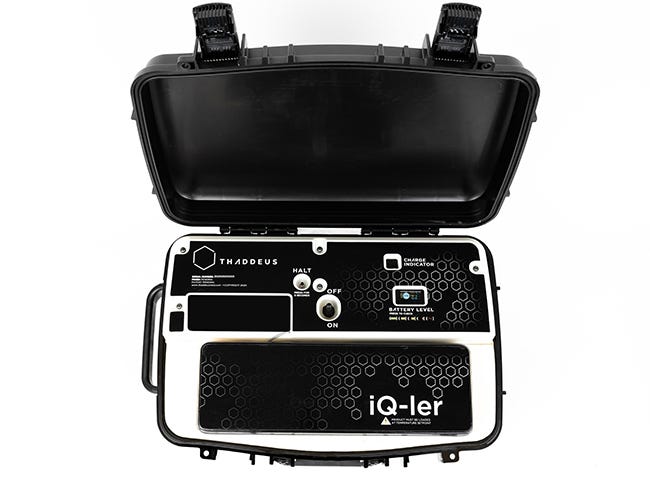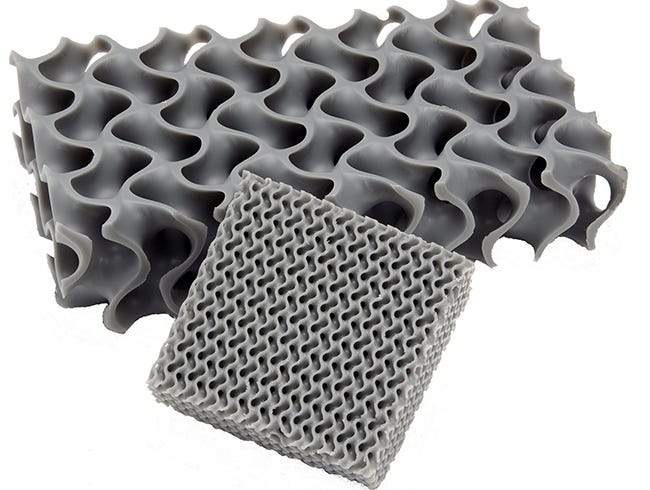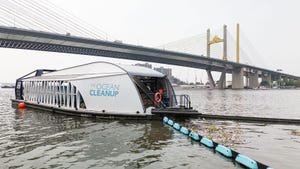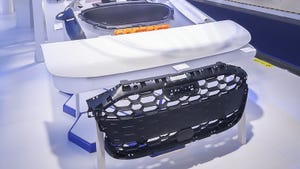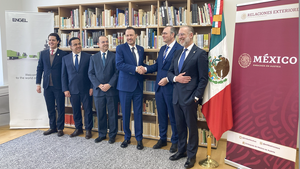DPI Manufactures Complex Lattice Structures for Medical Shipping Technology
The IQ-ler relies on gyroid lattice structures to safely and reliably transport temperature-sensitive medical supplies and specimens. Only 3D printing is capable of producing the unique structures, and only Diversified Plastics Inc. (DPI) had the technology to meet specifications.
September 17, 2020
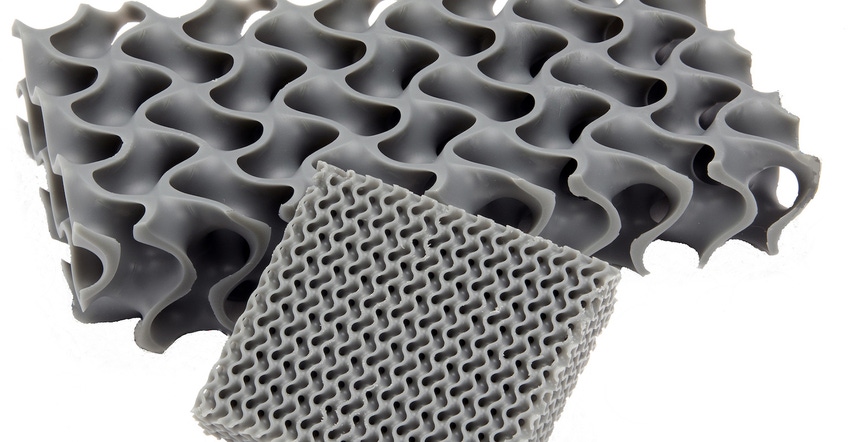
Shipping temperature-sensitive medical products is a delicate business. It’s estimated that 20% of such products are damaged in transit, representing an annual loss of around $35 billion. Medical-related cold-shipment failures also can damage business reputations and, in some cases, result in loss of life. Steve Scully, MD, PhD, and founder of Thaddeus Medical Systems, recognized an opportunity to improve patient care with a smart cold-chain packaging concept. His invention, the IQ-ler, is designed to enable the reliable transport of temperature-sensitive medical supplies and specimens. A key feature of the IQ-ler are the gyroid lattice structures that minimize vibration and shock while maximizing airflow. Conventional 3D printing or other manufacturing methods were unable to produce these structures. Diversified Plastics Inc., leveraging Carbon printers and the Carbon Digital Light Synthesis (DLS) process, proved to be the only supplier capable of producing the unique structures, according to Thaddeus Medical Systems.
|
The IQ-ler currently is undergoing product testing at Christian Brothers University and is being beta tested in real applications by some organizations. Image courtesy DPI/Thaddeus Medical Systems. |
“The gyroid lattice can potentially only be produced using 3D printing or additive manufacturing technology,” explained Scully. “To find the right solution to manufacture these components, we tried parts made from several 3D printers, some very well-known brands. The prototypes from these 3D printers didn't meet specifications and didn’t have a smooth surface finish. The material for the gyroid lattice needed to be compliant, flexible, and resilient to provide exceptional vibration damping with smooth-surface finish characteristics. The only prototype parts that matched our specifications were manufactured using the Carbon DLS process, the core of DPI’s Acceleration Station,” said Scully.
Powered by Carbon’s DLS process, Acceleration Station delivers production and prototype parts in days, not weeks, and without tooling, explained Kevin Hogan, Diversified Plastics CEO. “Carbon DLS fuses light and oxygen to produce products from liquid resins. It allows many end-use parts to be produced economically. The Acceleration Station engineering and production team works closely with customers to save time and money by optimizing parts for digital manufacturing,” Hogan told PlasticsToday. “These services can minimize the total number of components required or make previously un-manufacturable parts, such as lattices and complex geometries, possible. The Acceleration Station protocols adhere precisely to customer specifications, performance, and safety standards.”
|
The lattice structures are additively manufactured using silicone formulated by Carbon. Image courtesy DPI. |
Scully worked with DPI’s in-house team, first, to make the design of the lattice structures manufacturable using Acceleration Station technology and then testing various lattice sizes and materials. Carbon’s SIL 30 silicone met the performance requirements, and Carbon’s DLS process is being used to manufacture the finished parts.
The IQ-ler currently is undergoing product testing, including vibration and drop tests, at Christian Brothers University, and is being beta tested in real applications by some organizations, DPI told PlasticsToday.
DPI is an employee-owned company offering prototyping, injection molding, additive manufacturing, assembly and value-added services to the medical, aerospace, defense, filtration, and industrial sectors.
About the Author(s)
You May Also Like

